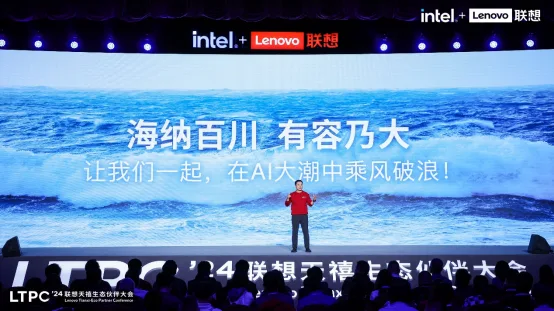Lenovo held the 2024 Lenovo Tianxi Eco-Partner Conference at the Beijing International Conference Center on December 26, unveiling its upgraded Tianxi Personal Intelligence System (Tianxi AS). The company also announced collaboration plans with several industry partners to embrace the new era of artificial intelligence (AI).
At the event, Zhang Hua, Senior Vice President of Lenovo Group and General Manager of China Consumer Business Group, highlighted the improvements made to Tianxi AS. He explained that the system operates on traditional operating systems and is deeply integrated with them, enabling seamless functionality across different devices and platforms. Tianxi AS can be deployed in a hybrid manner, utilizing both on-device and personal cloud capabilities, and offers personalized and contextualized assistance for users. Additionally, the system includes an open multi-agent connectivity feature, laying a solid foundation for the development of the AI ecosystem.
Zhang emphasized that the widespread use of AI agents is reshaping how people work and live. With advancements in cognitive intelligence, perceptual intelligence, and connective intelligence, Tianxi AS aims to understand and ultimately serve users better, facilitating a shift from application-centered technology experiences to interactions with smart agents which will become the main entry point in the future.
Chen Xuegui, General Manager of Lenovo’s Consumer Internet Services Division in China, provided a detailed overview of Tianxi AS’s architecture and functionalities. He noted that Tianxi AS consists of a personal AI assistant named Xiaotian and an intelligence operation platform, which integrates deeply with various device operating systems. The system boasts full-time memory capabilities, task planning, resource allocation, and tool invocation. Tianxi AS’s multi-modal natural interaction and intent understanding allow it to communicate with users through visual, auditory, and linguistic means seamlessly.
The interaction design of Tianxi AS utilizes features such as “boundary-less,” “predictive,” and “dynamic,” which break away from traditional graphical interfaces to enable interactions in three-dimensional spaces. The “predictive” attribute enhances user experience by leveraging the system’s perceptual awareness and memory to anticipate user intentions, allowing devices to become personalized assistants. Meanwhile, the “dynamic” trait ensures flexibility in interaction formats based on user needs and contexts.
Tianxi AS is set to roll out gradually across Lenovo’s PCs, smartphones, tablets, and IoT devices in China starting in the second quarter of 2025. Lenovo looks forward to driving AI innovation alongside its partners, exploring new business models, and delivering more personalized and intelligent products and services to users.
The conference also marked the establishment of the AI Terminal Intelligence Agent Innovation Committee by the China Software Industry Association, which aims to provide a stable collaborative platform for the development of China’s AI terminal industry and promote innovation and the construction of intelligent agent networks.
During a roundtable forum, industry executives and experts engaged in deep discussions about the future of Tianxi AS and its development trajectory. They concluded that AI agents hold immense potential in various application scenarios. Additionally, partnerships with entities like Volcano Engine will foster further innovation and application of AI technology.
Lenovo continues to deepen the integration of consumer and enterprise terminals, incorporating diverse applications and ecosystems into its open AI landscape. The company remains committed to building an open and win-win intelligent agent network eco-system with its partners to share in the benefits of the new AI era.





